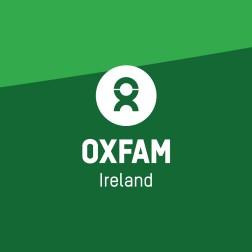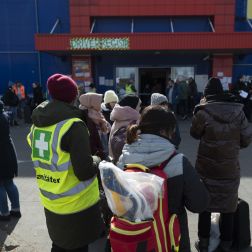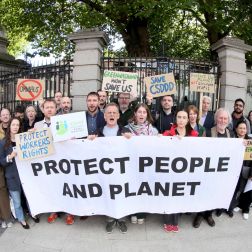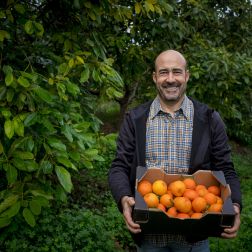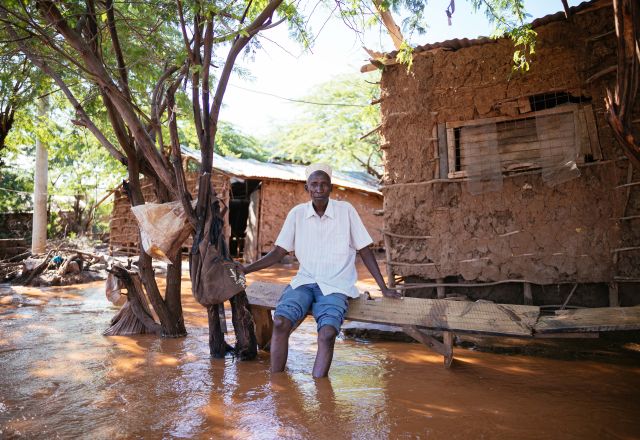
- 5 mins read time
- Published: 5th June 2024
The EU fiddles while the world burns
Examples of the severe impact of climate change around the world are now a daily occurrence. Two weeks ago Mexico suffered a deadly heatwave, while just this week people have started dying daily in India with record temperatures of 50C being recorded.
Not that you’d know this from the EU Parliament election campaign in Ireland- few candidates are setting out a bold vision for a just transition to a emissions free future- most seem to be parroting sectorial interests talking points and seem to be resigned to both Ireland and the Eu missing their less than ambitious climate targets by 2030. While the EU faces many challenges, there is consensus around the world from the scientific community that the climate crisis is the greatest threat to humanity and to the planet. Many scientists are now changing their message to the biggest threat to humanity and to the planet being inaction and subtle but toxic climate denial.
With our energy production and consumption models, Europe is carrying a historic responsibility. Instead of backsliding on climate commitments for short-term political gains, Europe must lead by example and ramp up climate action by committing to achieving climate neutrality by 2040. Simultaneously, the EU must provide new and additional climate finance to support low-income countries in adapting to the unstoppable effects of a climate crisis they did not create, and to compensate them for loss and damage. European leaders must also ensure that the EU’s trade and industrial policies support climate and development objective.
Most importantly, the EU must ensure that there is a just transition as climate action that is not just and that doesn’t share costs and benefits fairly will not succeed. In reality, the EU is trying to implement climate action on the cheap by retrofitting climate action onto a broken system. This will not generate citizen buy in and we are already seeing that climate action that doesn’t address inequality is generating a backlash on many fronts. The approach to climate action has to change.
The crises in recent years have accelerated the need to seek a way out of last century’s progress paradigm based on unbridled economic growth, intensive use of fossil fuels and subsidies for their production. Time is running out: societies’ decarbonisation and the transition to clean energy can no longer be postponed. Nor can this be accomplished without linking this transition to social justice. According to Eurostat, over 41 million people in the EU (9.3 % of the population) were unable to keep their home adequately warm in 2022. As a result of the war in Ukraine, the situation has worsened in recent years.
The EU has committed to reducing its emissions by at least 55% by 2030 to meet its obligations under the Paris Agreement and reach climate neutrality by 2050. A significant share of these emission reductions is achieved through policies that rely on increased land use for the production of bioenergy. Such land-hungry ‘net zero’ policies are a threat to global food security, forests and human rights. This danger is now compounded by the war in Ukraine. The conflict has put energy security at the top of the EU political agenda while driving prices of cereals, vegetable oil and other food products to record highs.
Charity retailers like Oxfam Ireland are playing an important role in mitigating the environmental impacts of the fashion industry (particularly fast fashion business models) through the promotion of secondhand clothing that supports a circular economy. Textile reuse contributes to carbon emission targets. Reuse is now key to the Waste Action Plan for a Circular Economy. By shopping in a charity shop, consumers extend the life of goods they buy and donate, thereby significantly reducing their carbon footprint. 103,150 tonnes of carbon equivalent emissions (CO2e) were avoided through the merchandise processed by charity retailers in Ireland in 2023. This is the equivalent of 3.8 billion trees absorbing carbon in one day, or -the-road cars in Ireland. The Waste Framework Directive (WFD) will mean the separate collection of textiles will begin in January 2025, the aim of which is to take all textiles (about 70 tonnes per year) out of the wastestream. It really important that charity retailers, as social enterprises, are supported to play a role in the collection, sorting and reuse of textiles is supported. Ireland is unique in having a larger network of charity shops than most EU members.
- Ensure the costs and benefits of climate action are shared fairly by supporting actions to ensure a just transition throughout the EU.
- Ensuring that EU climate and energy legislation is reviewed to achieve at least 65% reduction in greenhouse gas emissions by 2030.
- Pushing for an energy transition within the EU that is fair, accessible, equitable and incorporates a gender-based perspective. The EU must reduce its energy demand, shift entirely to sustainable renewable energy, eliminate all fossil-fuel subsidies and all support for crop-based biofuels. Ensuring that farmers in both Ireland and the EU and around the world are properly supported financially to transition to sustainable food production and that trade rules and regulatory frameworks (especially food commodities) don’t disadvantage small farmers in the global South.
- Increasing the EU’s share of grant-based climate finance for mitigation, adaptation, loss & damage and supporting low- and middle-income countries in accessing clean, accessible and reliable energy. Ensuring that charity retailers in Ireland, as social enterprises, are supported to play a central role in the collection, sorting and reuse of textiles, as part on the implementation of the Waste Framework Directive (WFD) on textiles after 2025.
- Ensuring the EU leads by example by ramping up climate action by committing to achieving climate neutrality by 2040.
- Ensuring that charity retailers in Ireland, as social enterprises, are supported to play a central role in the collection, sorting and reuse of textiles, as part on the implementation of the Waste Framework Directive (WFD) on textiles after 2025.
